Xu Feng
Towards Fair and Rigorous Evaluations: Hyperparameter Optimization for Top-N Recommendation Task with Implicit Feedback
Aug 14, 2024Abstract:The widespread use of the internet has led to an overwhelming amount of data, which has resulted in the problem of information overload. Recommender systems have emerged as a solution to this problem by providing personalized recommendations to users based on their preferences and historical data. However, as recommendation models become increasingly complex, finding the best hyperparameter combination for different models has become a challenge. The high-dimensional hyperparameter search space poses numerous challenges for researchers, and failure to disclose hyperparameter settings may impede the reproducibility of research results. In this paper, we investigate the Top-N implicit recommendation problem and focus on optimizing the benchmark recommendation algorithm commonly used in comparative experiments using hyperparameter optimization algorithms. We propose a research methodology that follows the principles of a fair comparison, employing seven types of hyperparameter search algorithms to fine-tune six common recommendation algorithms on three datasets. We have identified the most suitable hyperparameter search algorithms for various recommendation algorithms on different types of datasets as a reference for later study. This study contributes to algorithmic research in recommender systems based on hyperparameter optimization, providing a fair basis for comparison.
Deep Graph Learning for Anomalous Citation Detection
Feb 23, 2022
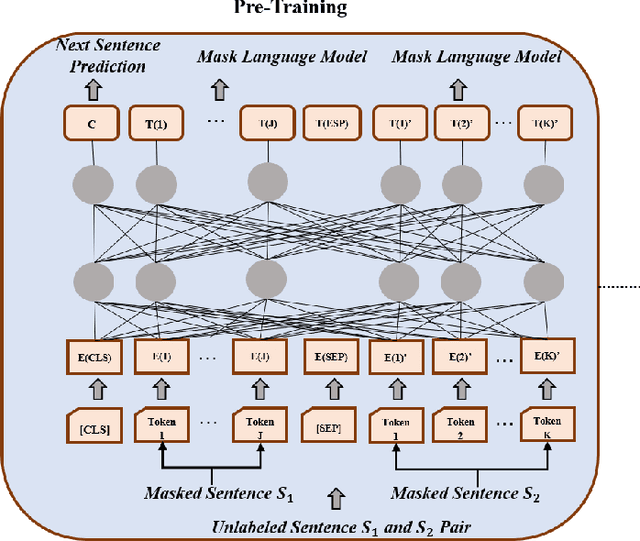


Abstract:Anomaly detection is one of the most active research areas in various critical domains, such as healthcare, fintech, and public security. However, little attention has been paid to scholarly data, i.e., anomaly detection in a citation network. Citation is considered as one of the most crucial metrics to evaluate the impact of scientific research, which may be gamed in multiple ways. Therefore, anomaly detection in citation networks is of significant importance to identify manipulation and inflation of citations. To address this open issue, we propose a novel deep graph learning model, namely GLAD (Graph Learning for Anomaly Detection), to identify anomalies in citation networks. GLAD incorporates text semantic mining to network representation learning by adding both node attributes and link attributes via graph neural networks. It exploits not only the relevance of citation contents but also hidden relationships between papers. Within the GLAD framework, we propose an algorithm called CPU (Citation PUrpose) to discover the purpose of citation based on citation texts. The performance of GLAD is validated through a simulated anomalous citation dataset. Experimental results demonstrate the effectiveness of GLAD on the anomalous citation detection task.
Faster Matrix Completion Using Randomized SVD
Oct 16, 2018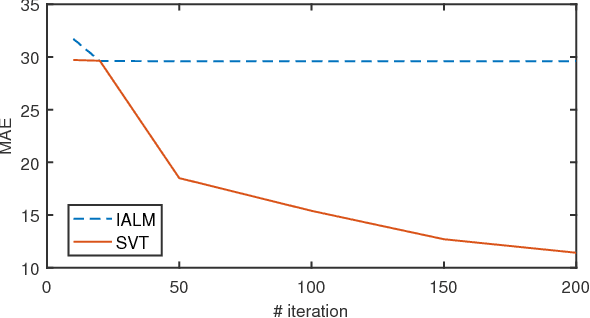
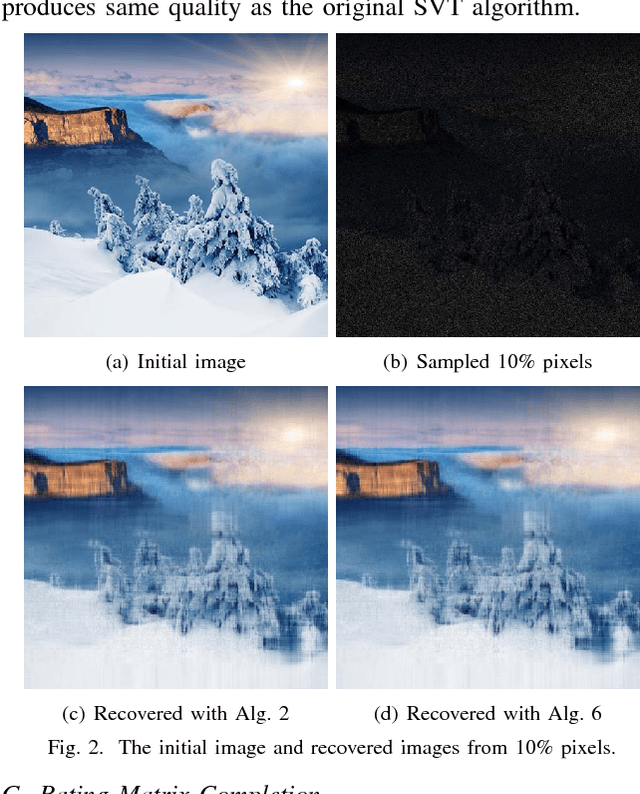
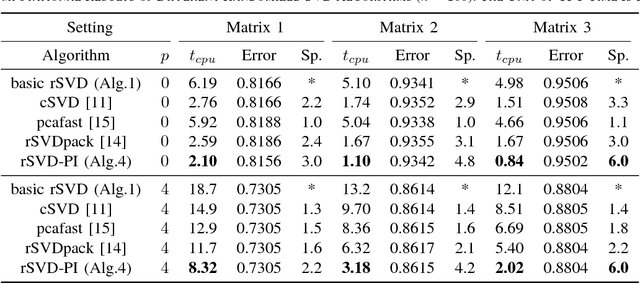
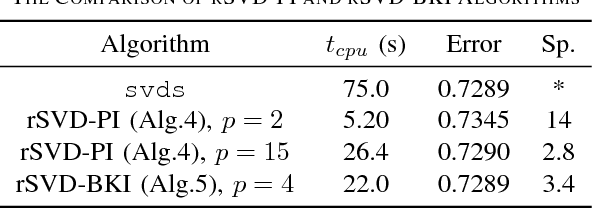
Abstract:Matrix completion is a widely used technique for image inpainting and personalized recommender system, etc. In this work, we focus on accelerating the matrix completion using faster randomized singular value decomposition (rSVD). Firstly, two fast randomized algorithms (rSVD-PI and rSVD- BKI) are proposed for handling sparse matrix. They make use of an eigSVD procedure and several accelerating skills. Then, with the rSVD-BKI algorithm and a new subspace recycling technique, we accelerate the singular value thresholding (SVT) method in [1] to realize faster matrix completion. Experiments show that the proposed rSVD algorithms can be 6X faster than the basic rSVD algorithm [2] while keeping same accuracy. For image inpainting and movie-rating estimation problems, the proposed accelerated SVT algorithm consumes 15X and 8X less CPU time than the methods using svds and lansvd respectively, without loss of accuracy.
Fast Randomized PCA for Sparse Data
Oct 16, 2018
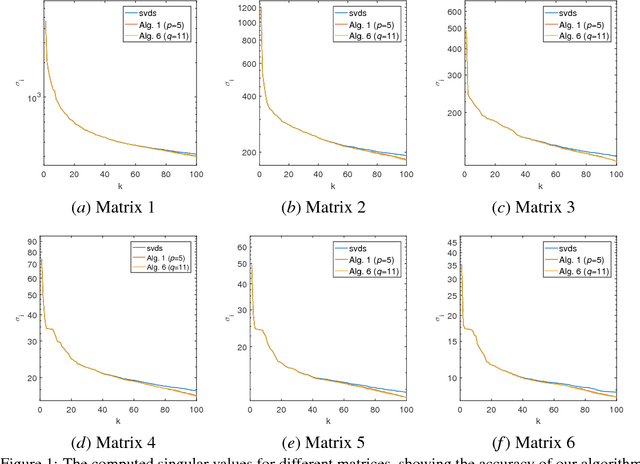

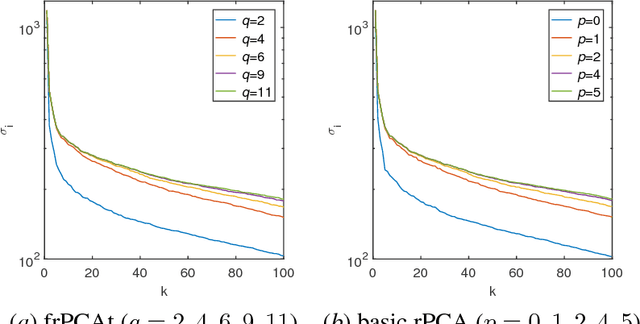
Abstract:Principal component analysis (PCA) is widely used for dimension reduction and embedding of real data in social network analysis, information retrieval, and natural language processing, etc. In this work we propose a fast randomized PCA algorithm for processing large sparse data. The algorithm has similar accuracy to the basic randomized SVD (rPCA) algorithm (Halko et al., 2011), but is largely optimized for sparse data. It also has good flexibility to trade off runtime against accuracy for practical usage. Experiments on real data show that the proposed algorithm is up to 9.1X faster than the basic rPCA algorithm without accuracy loss, and is up to 20X faster than the svds in Matlab with little error. The algorithm computes the first 100 principal components of a large information retrieval data with 12,869,521 persons and 323,899 keywords in less than 400 seconds on a 24-core machine, while all conventional methods fail due to the out-of-memory issue.
 Add to Chrome
Add to Chrome Add to Firefox
Add to Firefox Add to Edge
Add to Edge